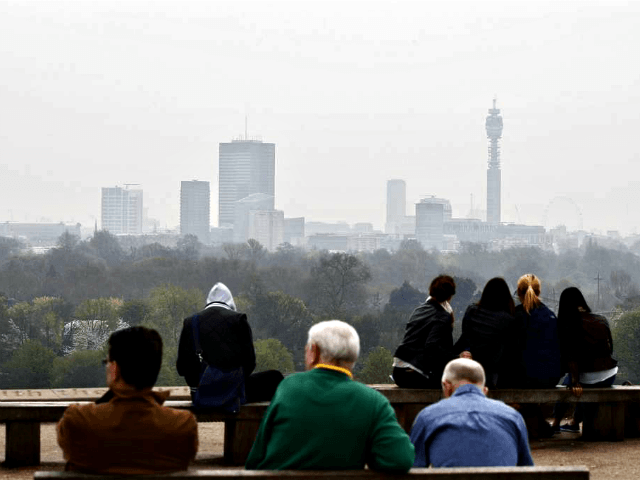A study in the Proceedings of the National Academy of Sciences claims that white people contribute more to pollution than black and Latino people, but the latter suffer from it more than the white polluters.
“The air that Americans breathe isn’t equal,” USA Today says in its report on the study.
“Blacks and Hispanics disproportionately breathe air that’s been polluted by non-Hispanic whites, according to a study,” USA Today says. “This new research quantifies for the first time the racial gap between who causes air pollution – and who breathes it.”
The study is available online, including a portion entitled “significance.”
Racial–ethnic disparities in pollution exposure and in consumption of goods and services in the United States are well documented. Some may find it intuitive that, on average, black and Hispanic minorities bear a disproportionate burden from the air pollution caused mainly by non-Hispanic whites, but this effect has not previously been directly established, let alone quantified. Our “pollution inequity” metric is generalizable to other pollution types and provides a simple and intuitive way of expressing a disparity between the pollution that people cause and the pollution to which they are exposed. Our results are timely, given public debate on issues relating to race, equity, and the regulation of pollution.
USA Today reports that 100,000 Americans die from pollution a year, more “than car crashes and murders combined,” although the exact causes of death and how it relates to pollution are not explained.
“Even though minorities are contributing less to the overall problem of air pollution, they are affected by it more,” Jason Hill, an engineering professor at the University of Minnesota and co-author of the study says in the USA Today report, which notes that he is white.
“Is it fair (that) I create more pollution and somebody else is disproportionately affected by it?” Hill says.
“What is especially surprising is just how large pollution inequity is and has been for well over a decade,” Hill says.
The type of pollution analyzed in the study is PM 2.5 — grains of particulate matter that are smaller than the width of a human hair, according to USA Today. They are present in car exhaust, from power plants, and burning materials.
USA Today reports:
The study found that black and Hispanic Americans bear a “pollution burden:” Blacks are exposed to about 56 percent more pollution than is caused by their consumption. For Hispanics, it is slightly higher – 63 percent.
However, non-Hispanic whites experience a “pollution advantage,” meaning they breathe about 17 percent less air pollution than whites cause.
The formula scientists used in their study is driven by disparities in the amount of goods and services that groups consume and in the exposure to the resulting pollution.
“On average, whites tend to consume more than minorities,” Hill says. “It’s because of wealth.”
“For example, the scientists found that whites spend more money on pollution-intensive goods and services than do blacks and Hispanics, which means they generate more pollution than the other groups do,” USA Today reports.
“Someone had to make the pen you bought at the store,” Julian Marshall, another co-author of the study who is an engineering professor at the University of Washington, says. “We wanted to look at where the pollution associated with making that pen is located. Is it close to where people live? And who lives there?”
But the USA Today report also reveals that “non-Hispanic whites” category used in the study includes Asian-Americans and Native Americans, making the emphasis on wealthy whites seem incongruous.
The study authors used data on expenditures from the U.S. Bureau of Labor Statistics, USA Today notes.
USA Today found an expert who agrees with the study for its reporting.
“These findings confirm what most grassroots environmental justice leaders have known for decades, ‘whites are dumping their pollution on poor people and people of color,’” Texas Southern University public affairs professor Robert Bullard said.
Follow Penny Starr on Twitter

COMMENTS
Please let us know if you're having issues with commenting.